Image: Powerhouse Museum
This article was written in response to the “Why cover your head when you expose your body?” by Shahful Shaffiq.
Today I read an article shared over 20,000 times on social media that shamed Muslim women for not wearing the hijab correctly. To me, this highlighted that thousands of people in our wider Muslim community shared similar sentiments toward the way hijabis dress. As a Muslim woman and a hijabi, I felt the need to breakdown the arguments put forward by the article and to provide an alternative, often ignored or belittled, perspective.
- No Experience = No Comment
In what ever form, deciding to wear the hijab can be a daunting experience for Muslim women. Image: www.scpr.org
It is easy to criticize other people’s choices from behind a computer, but your analysis, however well-meaning it might be, loses credibility if you are talking about an area in which you have no personal experience. Mr. Shaffiq, as someone who is neither a female nor a hijabi, your article has not come from a place of empathy nor personal experience, but rather one of judgment.
- Shaming helps no one.
‘Well meaning’ advice given without wisdom can trigger unintended negative effects. Image: www.nothinginmind.com
In a world that measures a woman’s worth largely by her physical appearance (covered or otherwise), it is a daily struggle for women to balance dressing modestly, looking good, and blending into society. Yes, I completely understand and agree that as women who wear hijab, we may not always do so to the highest standards, and some may even dress in a way that others feel is inappropriate or even ‘sexy’ – but understand that every sister is doing the best she can with what she knows and the culture in which she lives.
A move toward a more modest dress code will not happen if you wag your finger and shame women. We receive enough criticisms from the world at large–and a condescending lecture from other Muslims, rather than acceptance and understanding, only serves to antagonize hijabis further.
- Reframe shame for a much better game.
Our ummah can respond much more positively when we are all on the same page. Image: www.qz.com
Do not divide women into categories of piety, separating the ones who do wear hijab from the ones who cover their hair but dress in fitted clothes from the ones who do not wear the headscarf. This only serves to alienate. Allow ladies to understand the real benefits of hijab by communicating with them in a respectful and compassionate manner, and they will happily choose to embrace it all on their own.
So by all means, provide constructive suggestions or alternatives. You have the option to privately inbox or speak face-to-face with a sister personally if something truly concerns you. Or better yet, organize public discussions on faith and modesty where women can share their thoughts. Be the man who launches a clothing line to promote your idea of genuine modest wear.
- Judging others can result in flawed, contradicting standards.
Chahida Chek pictured on the left and and Rozita Che on the right as featured in the ‘Why cover your head when you expose your body?’ article.
Is it your choice of color which makes wearing tights halal?
Leave the judging to Allah. When you put on the “haram police” hat, you inevitably end up contradicting yourself. Here’s an example: Your article describes Chahida Chek, the first Italian Muslim female referee, as the perfect example of a women who balances her religious obligations with the pursuit of her dreams. Meanwhile, you dismiss actress Rozita Che Wan for posing in a photograph wearing a “sexy” outfit—thigh high flesh colored tights with black boots. Both women wear a hijab but because one wore black leggings and the other tan tights, you deem one more modest than the second. And if that criticism isn’t confusing enough, add to it that Chek is wearing a bright pink jacket with her black leggings, a no-no according to your article a few paragraphs earlier. Both women are amazing and it is unfair to compare the two so publicly. Technically speaking, neither men nor women should wear tights in public, because Allah prohibits delineating one’s ‘awra’, but you could forgive me for taking away the message that wearing dark tights while refereeing soccer is acceptable but skin colored tights while vacationing with family is not. As brothers and sister, when we judge each other it is seldom done fairly; let’s just keep our comparisons and criticisms to ourselves and let Allah be the Judge.
- It is human nature for spiritual journeys to lift and dip.
Image: @islawmix
I know that my spiritual evolution has not been a steady upward climb, and I’m willing to bet that the same goes for every Muslim and women. The journey to move closer to our Creator is a series of peaks and valleys. There were periods in my life when I felt proud, confident, and excited to slip on my headscarf, and there were phases when I felt insecure and frustrated by the very same piece of cloth. Remember that when you judge a woman for how she dresses, you have no idea whether she is at a spiritual peak or a valley and what brought her there. To force a woman to defend her degree of modesty is to judge her personal journey. And she may eventually decide to dress in an incredibly modest fashion, but allow her the time, space, and understanding to travel her own path at her own pace.
- Once you wear a hijab, you become a target.
Muslims, women often bear the brunt of people anger towards Islam. Image: smh.com.au
The mainstream media in Western societies portrays Muslims as violent and Muslim women as oppressed, and there are plenty of people who genuinely perceive us as threats. In this type of unwelcoming culture, to wear any sort of visible symbol of your Muslim faith can invite glares, taunts or even physical assaults. And wearing a hijab is no longer simply a personal choice, it is a political statement. When people target Muslims, they don’t differentiate or decided how modest the women is before they do – for them, a hijab is a hijab.
It is easy to volley criticisms at sisters if you have not experienced the Islamophobic assumptions of others. Despite the risks, many Muslim women still choose to walk out the door every day in a hijab – regardless of color and style – this is in itself an act of courage and faith. Learn to appreciate our struggle and leave the judging to God.
- Hijab was not always trendy.
Dian Pelangi is a pioneer in modest fashion. Her work has encouraged multitudes of women to embrace wearing hijab. Image: @dianpleangi
For those who claim hijab has been reduced to a fashion accessory, I remember a time not long ago when wearing hijab was the least fashionable thing you could do. As I see it, sisters have come a long way to transform the“uncool” into the popular and this is something to embrace. Being fashionable and being modest are not mutually exclusive.
- You do not get points for turning Muslims against each other
By assigning women who wear hijab the “good Muslim” label and dismissing those who do not, or those who wear the hijab with skinny jeans as “bad Muslims,” you are creating discord among your sisters.
Along those lines, do not assume that those of us who do wear hijab or even niqab are model Muslims. This is an unfair and impossible expectation to meet. We all have our shortcomings and the hijab does not magically grant us immunity from evil. Remember lying, backbiting, or cheating are sins whether you wear a hijab or not.
- Men wear tight pants…very tight pants.
Image: qaherathesuperhero.com
It used to be difficult for brothers to grow a beard but now that beards are trending, I have noticed many more brothers growing a beard. This is great to see, but what is interesting is that these same men still wear skinny jeans or slacks that reveal everything. Our Islamic tradition does not justify wearing clothing that shows the shape of a man’s thighs and butt, yet guys face no backlash for wearing fitted pants. Double standards much?
Still, I don’t feel it is my place to judge publicly on what standards of modesty men should be dressings to or point out men in particular by name who do this. Please afford us the same respect.
- Let us prioritize.
Image: muslimgirl.net
Hijab is mandated in the Qur’an, but it is not an act that takes us outside the fold of Islam. Yet we fixate on it as though it is the only thing that matters. When people in our community put women down for not dressing correctly, it implies that hijab defines a Muslim, when, in fact, stealing, fornication, or disrespecting one’s parents are far greater sins. Yes, hijab is compulsory, but God has given us a hierarchy to perfect practices. So let’s be as zealous about women (and men) maintaining their five daily prayers, than we are about women covering their hair.
[separator type=”thin”]
Thehijabstylist is a pharmacist by day and a stylist, designer and YouTuber by night. She can be reached on Facebook, Instagram and Twitter @thehijabstylist.

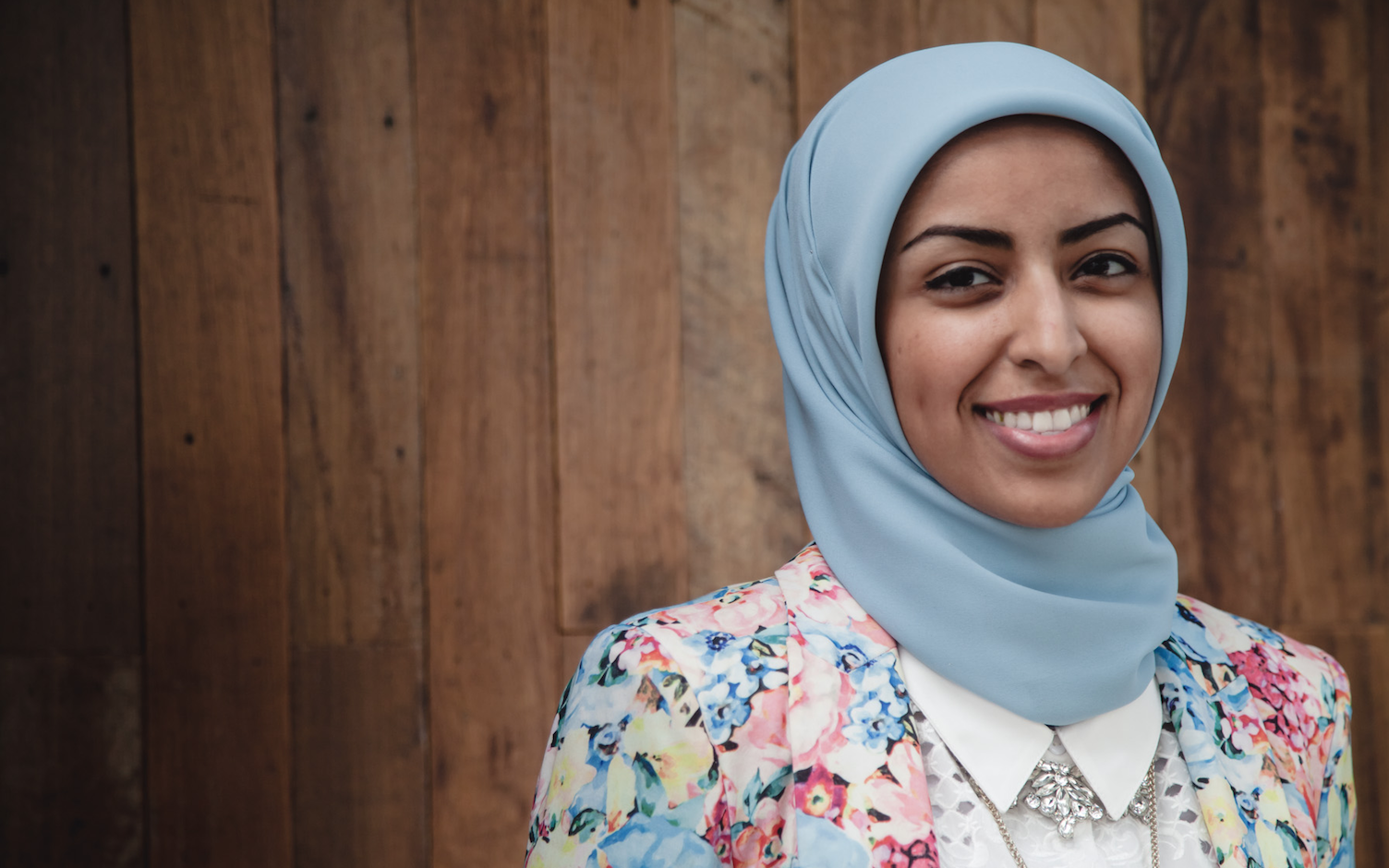
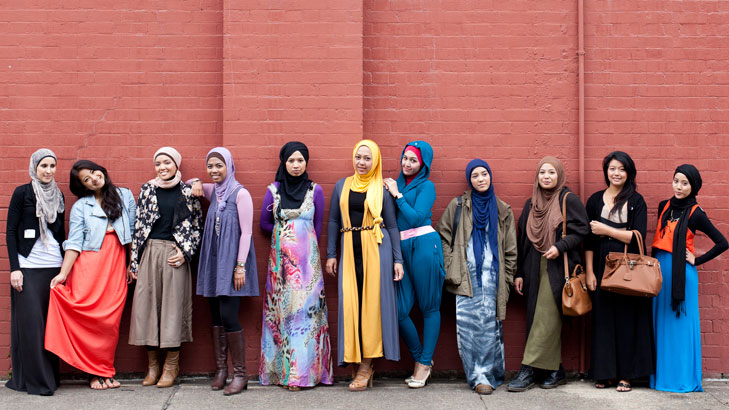
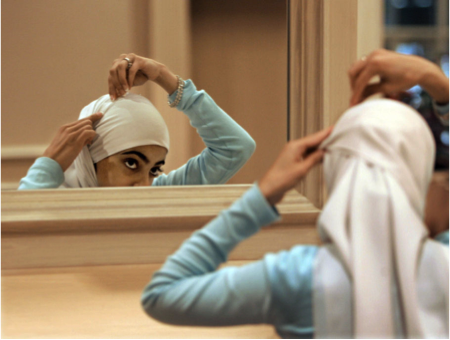
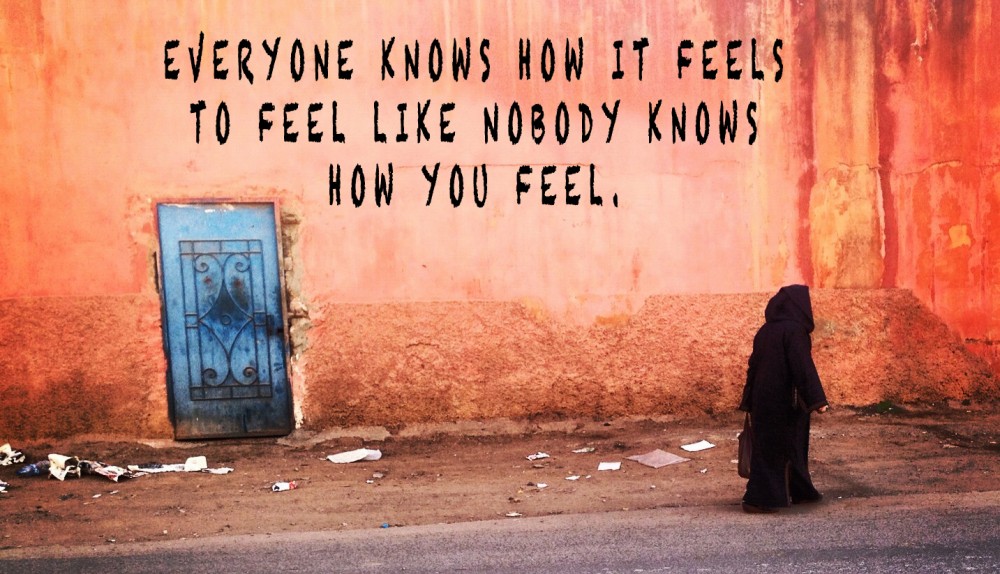
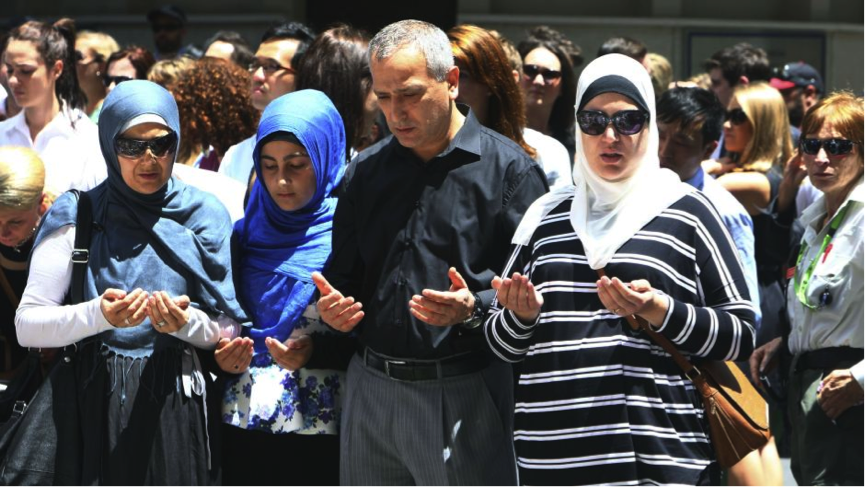
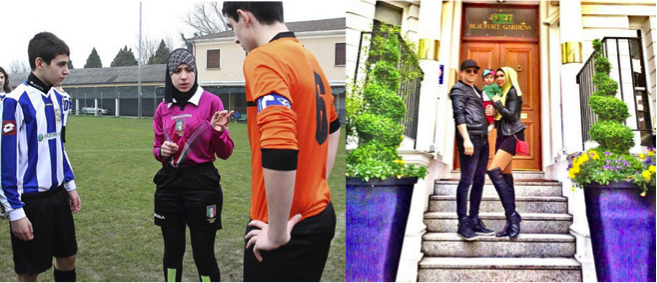
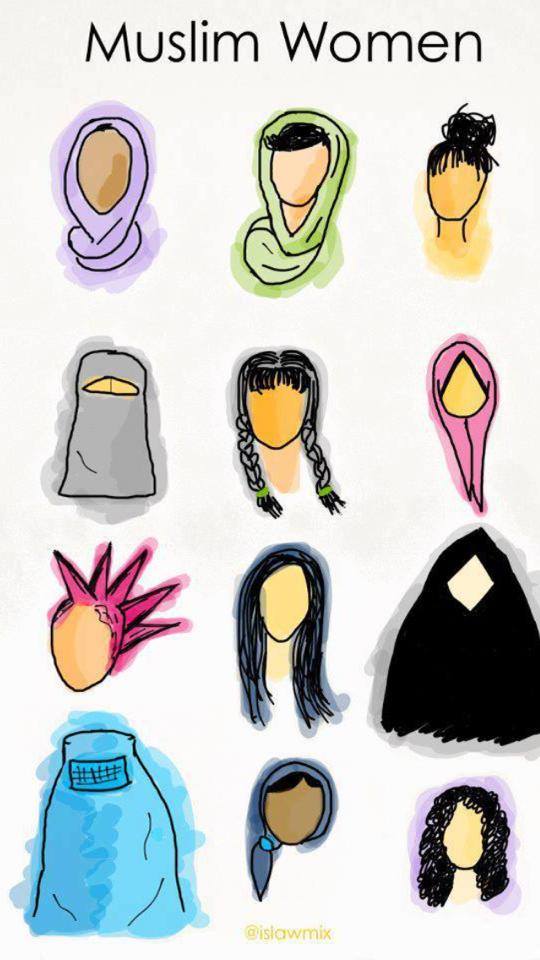
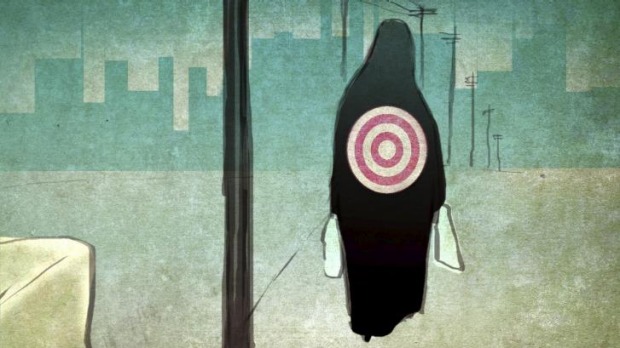
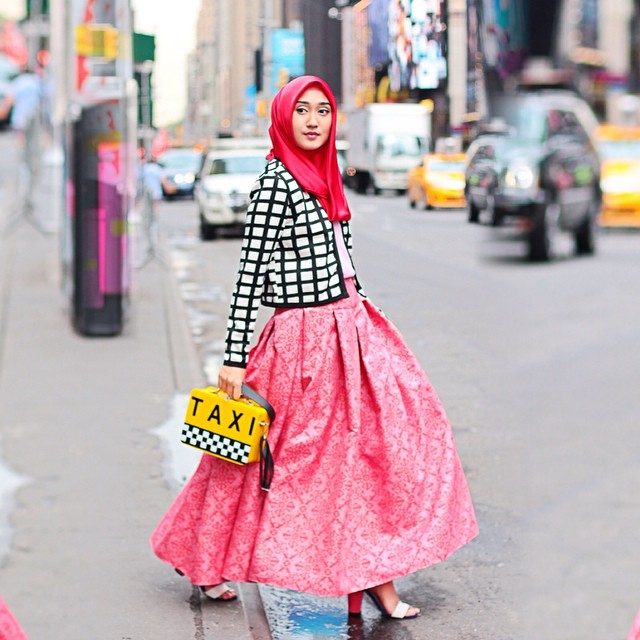
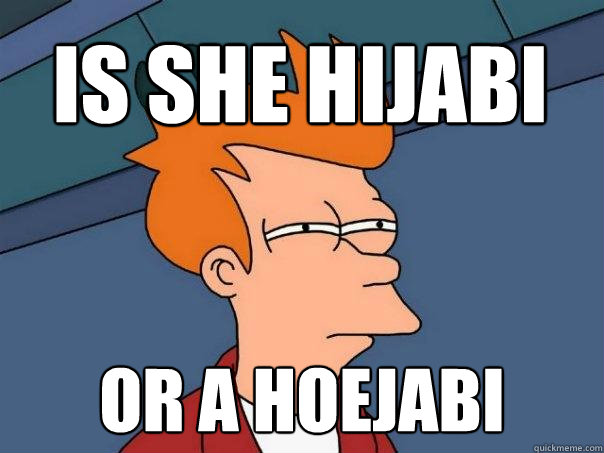
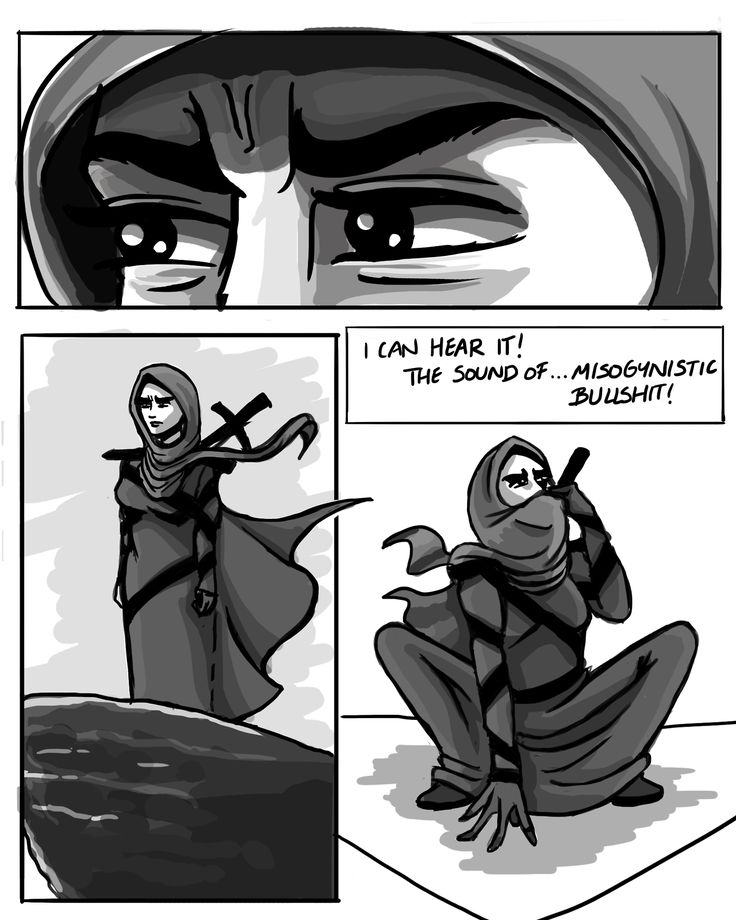
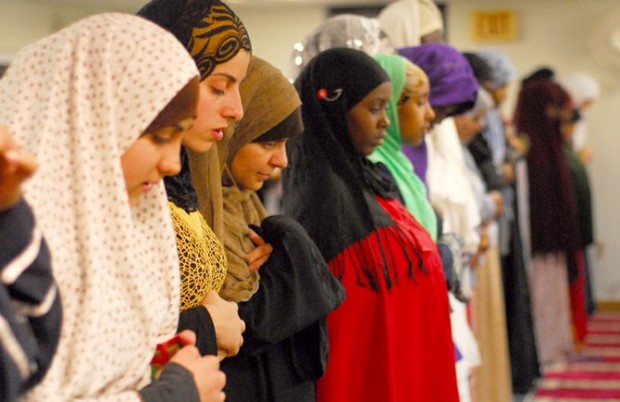



The author is just as judgmental as those she chastises in the article. Not all Muslims agree that the definitation of hijab or khimar includes the mandated covering of the hair and cetainly her equation of covering the hair as representative of a higher spirtual piety for Muslims is arrogant. I really don’t see the difference between hijabis obsessed with asserting their “style” with elaborate accesories and lots of makeup makes them any more (or less) practicing than any other Muslim woman. Can we please just get over this subject, so tired of Muslim women being reducd to this issue by Muslims and non-Muslims alike. The expectation that a Muslim woman should remover her head covering is no less concerning or discriminatory than the same Muslim who want to mandate if/how we cover. (This includes the many AMERICAN MUSLIM institutions that require their student, staff and teachers to wear them. Hypocrisy works both ways.
I don’t see how you can make the claim that the author is just as judgmental as those she’s responding to. She clearly states that Muslim women should NOT be reduced to the hijab in many of her points and her choice of visuals. You’re essentially shutting her down by saying that the act of responding to and critiquing a ridiculous claim based on the conditions of the claim itself perpetuates judgment – but that leaves no room for discussion.
I find the statements below judgemental, particularly the bracketed portions. The bracketed portion assumes that non-hijab wearing Muslimas need your advice or counsel. Assuming that we are not intelligent enough to read and interpret the verses for our own lives is the same kind of reasoning that she is criticizing. It still reeks of arrogance to me. It seems to me that somehow a disproportionate emphasis has been placed on the “hair”, even though this word is not mentioned in the Quranic Ayat. So we can excuse the wearing of tight clothes, heavy makeup, etc., AS LONG AS YOUR HAIR IS COVERED. Just maybe a Muslima who wears modest clothing and does not cover her hair is just as pious in the sight of Allah. How about we let Muslim women determine for themselves how they choose to define modesty and keep our opinions to ourselves? The only women I know who enjoy drawing attention to this issue are the ones who view their hijab as a cloak of piety that makes them better than others, or those who want to enjoy the attention being a “hijabi fashionista” gives them. I was once one of these hijab/haram obsessed women and it saddens me now all of the time and energy I wasted on these trivial superficial issues. No one should feel like they have the right to approach someone who has not asked for your opinion and give them advice on their practice of their faith, ever. I have seen many converts leave the community because of this pervasive attitude. All of it is so tiring, so many more important issues for Muslims to tackle.
“Do not divide women into categories of piety, separating the ones who do wear hijab from the ones who cover their hair but dress in fitted clothes from the ones who do not wear the headscarf. This only serves to alienate. .
Or better yet, organize public discussions on faith and modesty where women can share their thoughts. Be the man who launches a clothing line to promote your idea of genuine modest wear.”
Sorry for some reason my bracket quotes did not post, these are the statements I am talking about;
Allow ladies to understand the real benefits of hijab by communicating with them in a respectful and compassionate manner, and they will happily choose to embrace it all on their own.
So by all means, provide constructive suggestions or alternatives. You have the option to privately inbox or speak face-to-face with a sister personally if something truly concerns you. Or better yet, organize public discussions on faith and modesty where women can share their thoughts. Be the man who launches a clothing line to promote your idea of genuine modest wear.
I find it highly ridiculous that men are still trying to be the voice for female Muslim issues.
At the end of the day ANYTHING we do in Islam is a personal choice and one we are personally responsible for so I think it’s fine to educate others on certain issues but the whole judgement of what women wear is ridiculous. It’s up to them to dress as they see fit.
Good article. There is a Muslim culture of shaming/judging women going on here – from Muslimahs who don’t wear the Hijab to those who don’t wear it as it’s meant to. I’ve read articles by some conservatives Hijabis claiming that non-Hijabis are seeking male attention and that those who wear it but not “perfectly” are weak in faith. A Muslim brother once commented that he prefers hijabi women because you can tell that they have integrity and Akhlaq from the way that they dress. I laughed from beginning to end. Really? Is our understanding of each other that superficial? How sad that we reduce each other to the pieces of cloth we choose to wear on our heads. Like the previous poster, I also believe that essentially everything we do in Islam is a personal choice and I’m tired of Muslim men telling us what we’re supposed to think about Hijab or how to wear it.
I don’t understand why women do not think we need to wear a headscarf. Allah commanded: O Prophet! Tell your wives and your daughters and the women of the believers to draw their cloaks (veils) all over their bodies. The women of the Sahaba, as narrated by A’isha tore their clothing so as to immediately cover their hair, neck, and bosom….